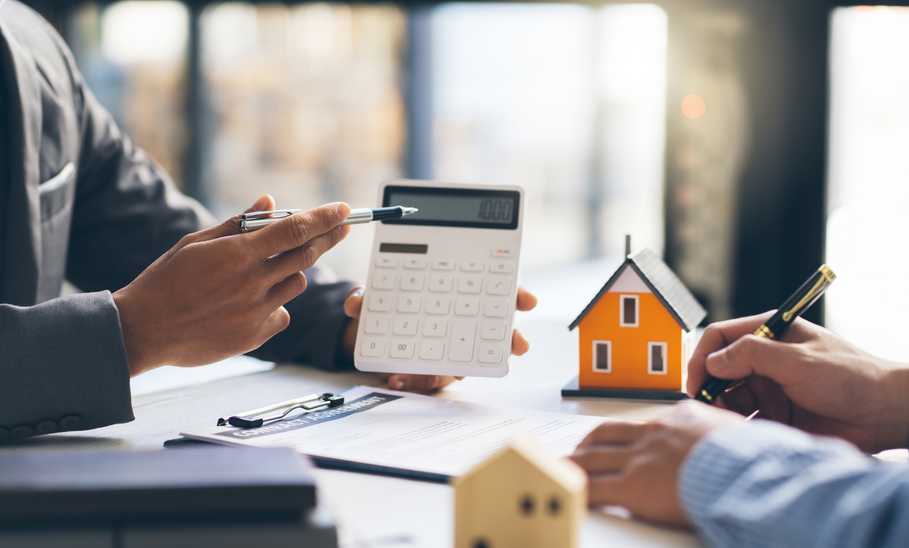How to Buy and Sell a House At the Same Time


Our evaluations and opinions are not influenced by our advertising relationships, but we may earn a commission from our partners’ links. This content is created by TIME Stamped, under TIME’s direction and produced in accordance with TIME’s editorial guidelines and overseen by TIME’s editorial staff. Learn more about it.
Moving is always stressful and expensive, but that's especially true when you're trying to buy a new home and sell your old one at the same time. There are costs involved on both sides of the equation, so you'll need cash flow to make both ends of the deal go through. You may even have the down payment for your new home tied up in your old one, necessitating a situation where you close on your old one before your new home, yet somehow have a place to live in between.
If you're trying to sell a home and buy another one over the same general timeline, you'll need to get the timing just right. This guide goes over the exact steps you can take to buy and sell a home at the same time without winding up with multiple mortgage payments or no place to live.
While some homeowners cannot imagine selling their home without having a new property to move into, others need to unlock their home equity so they can purchase another property in the first place. That said, many homeowners are able to line up both transactions so they can move directly out of one home and into another.
If your goal is making the process as seamless as possible, here's a rundown of the steps you'll want to take.
First, you'll want to make sure the home you live in is ready for a quick and easy sale. You can do this by hiring a listing agent who will market your home and publish it on a Multiple Listing Service (MLS) once it's ready.
Note that you may need to make an initial financial investment in your home in order to expedite a sale or get top dollar. It's not uncommon for sellers to replace aging home components (e.g. HVAC system, water heater, etc.) before they list their home for sale, nor is it uncommon to spend time and money painting or replacing aging and dated flooring.
Your listing agent will also suggest you spend some time decluttering your home and removing personal items like family photos. Finally, your home will need a deep and thorough cleaning before you list it for sale.
Next, you'll want to take steps to get pre-approved for a mortgage. And with today's housing market still incredibly competitive, you'll need to make sure your new mortgage pre-approval does not hinge on you selling your current home first.
To complete this step, you should take the time to compare mortgage rates with a handful of the best home lenders. From there, you can apply for mortgage pre-approval by submitting a formal application along with your personal and financial information.
The pre-approval letter from your mortgage company will show home sellers your financial strength as well as how much you can afford to spend. Ultimately, this will give you a leg up as you work toward getting an approved offer for a new home.
If you have a significant down payment to purchase a new home without selling your old one, you're already good to go. Note that, since you're not a first-time home buyer, you'll need to have a down payment of at least 5% to buy another home, or a 20% down payment if you want to avoid paying private mortgage insurance (PMI) on your new mortgage.
If the down payment on your new home is "locked up" in your old home, on the other hand, you'll need to figure out a way to fund your new home purchase that doesn't rely on you closing your home sale before you buy.
Temporary financial tools that can help include:
While this isn't always the case, it may be possible to time your home's sale and new home purchase so they fall over a similar timeline, or even on the same day. An experienced real estate agent can walk you through the steps to take to get the timing perfect for your lifestyle and your finances.
For example, you might begin negotiating a home purchase at the same time your home hits the market. If you get a few offers on your home and line up a deal within the same week as your home purchase agreement is finalized, you might be able to do both closings within the same time period.
If you manage to sell a home and close on your new one on the exact same day, you may be able to move directly from one home into another. In this scenario, however, the money transfer you get from selling your home would need to hit your bank account before you could use the money toward the down payment and closing costs on your new home.
If you have to close on your old home several days or weeks before you close on your new one, you'll have to get creative when it comes to what to do while you wait.
Potential solutions include:
Warning: While setting up a rent-back agreement with your homebuyer may seem like the best option when you have to sell before you buy, you should note that not all buyers will be willing or able to facilitate this type of agreement. There are also risks involved, including the risk the home will become damaged during the rental period.
In some scenarios, it can make sense to go ahead and purchase a new home without selling your old one first. However, not everyone can pull off this financial move without consequences, nor can everyone afford it.
Pros and cons of buying a house while you still own your old one include the following:
| Pros of buying before selling | Cons of buying before selling |
|---|---|
|
|
In some scenarios, it can make sense to sell your home and cash out before you set up closing for a new one. There are even times when the steps have to take place in this order, such as when a mortgage lender says your income isn't high enough to manage two home loans at a time.
Pros and cons of selling your old home before buying include the following:
| Pros of selling before buying | Cons of selling before buying |
|---|---|
|
|
There is no "right" or "wrong" way to buy a home and sell your old one at the same time, but there are steps you can take to make the process less expensive, less stressful and more convenient overall. Obviously, lining up the closing for both properties on the same day can be advantageous, but even that leaves you managing two important transactions simultaneously with almost no room for error, then having to move houses on the same day.
Regardless of whether you want to try to do both at the same time or move one transaction along before the other, the best thing you can do is make sure you are financially equipped for buying a new property and all it entails. This means checking your credit score, saving up a significant amount of cash reserves and getting pre-approved for a mortgage, so you know exactly what you can afford.
Once you have your financial ducks in a row, the best home lenders can help set up the rest.
If your income isn't high enough to qualify for a second mortgage before you sell a property, you'll have to sell your old home before you buy a new one. In this case, you'll need to find a temporary place to live and store your belongings while you search for a new home.
Several financial products can help you tap into your home equity or buy a new home while trying to sell your old one. For example, you can look into bridge loans, home equity loans, home equity lines of credit (HELOCs), and borrowing from your 401(k).
You can put an offer on your house if your old one hasn't sold, but you'll want to get pre-approved for a new mortgage first. In some cases, however, a lender will pre-approve you for a new mortgage with a sales contingency. This means you can only buy a new home if your old home is sold first.
The information presented here is created by TIME Stamped and overseen by TIME editorial staff. To learn more, see our About Us page.



